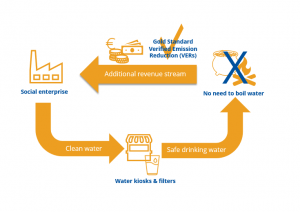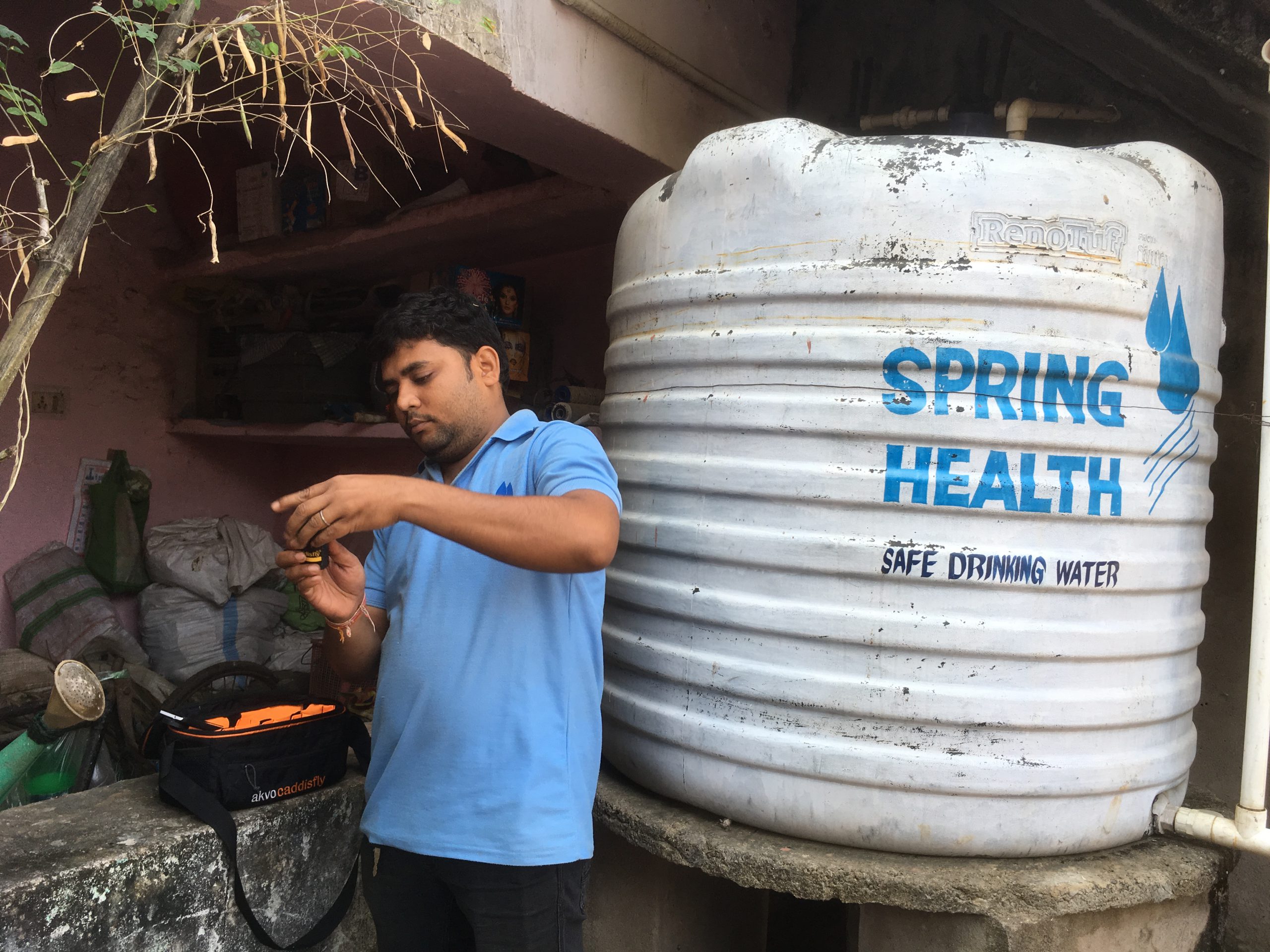Since 2013, Aqua for All has financed carbon credit projects. Carbon credits can be used as catalytic financial instruments for increasing investments in the water and sanitation sector. Results-based financial schemes like carbon credits provide an additional revenue stream to water and sanitation small and medium enterprises (SMEs) to finance their scale and become more attractive to investors while avoiding tens of thousands of tonnes of CO2 emissions annually.
What are carbon credits?
A carbon credit is a tradeable instrument which represents either a permit that allows the holder the right to emit one tonne of CO2 or equivalent greenhouse gas into the atmosphere; or a certificate from a project that represents the removal or avoidance of one tonne of CO2 into the atmosphere.
Carbon credits are purchased by buyers (in compliance with government regulations or on the voluntary carbon market) to offset their carbon footprint and reduce the greenhouse gas emissions caused by their activities, often as a part of their sustainability agenda.
How can carbon credits support the water and sanitation sector?
Carbon credits can be used as incentives to reduce carbon emissions as well as an additional revenue stream for water and sanitation SMEs. The additional revenue helps the SMEs grow and become investment-ready.
To give an example; a water enterprise provides safe drinking water to households through water kiosks and water filters. Water kiosks and water filters eliminate the need to boil water, thereby avoiding carbon emissions involved in this process. The social enterprise receives additional income, which finances its expansion to reach more households. As seen in the figure below, the cycle goes on, increasing the environmental impact by reducing greenhouse gas emissions. It also has a positive impact on health as having access to safe drinking water contributes to a safer environment while reducing household costs.

Aqua for All is currently implementing carbon credit projects in India and Ethiopia. We work with local partners that sell carbon credits to companies and individuals on the voluntary carbon market. Certifying carbon credits requires considerable upfront investment, which is covered by Aqua for All as it is aligned with our mission to support scaling up enterprises and to achieve a sustainable, inclusive water and sanitation economy.
Partnering with Spring Health in India
In 2014, we partnered with Spring Health to start a carbon credits project in India. Two years later, the first 50 water kiosks were certified.
Spring Health offers an affordable supply of safe drinking water through water kiosks in rural and peri-urban areas in the state of Odisha, India. Spring Health uses electro-chlorination technology to disinfect water from village wells and this treated water is made available to people through a subscription and franchise-based model. In Odisha’s rural areas, people often cook on cookstoves using wood as fuel. By eliminating the need to boil water, carbon emissions are considerably reduced.
On a daily basis, Spring Health supplies safe water to more than 150,000 people in over 250 rural villages in Odisha. These activities are partly financed by the sales of carbon credits on the voluntary carbon market. This project has contributed to creating around 750 jobs for people in different sectors (engineers, scientists, project managers, chlorine production, etc) and has helped boost the business for local shops and tuk-tuk drivers that sell the water as well.
Expanding to Ethiopia
Following the successful implementation in India, Aqua for All started replicating this project in Ethiopia in 2018. In Ethiopia, point-of-use water filters ensure access to safe drinking water at home or in institutions, such as healthcare centres. These filters reduce the demand for conventional water treatment through boiling water, which reduces CO2 emissions. Income from the sales of carbon credits has allowed expanding these activities.
To date, over 12,000 filters have been sold, granting access to safe water for 60,000 people. This has avoided 16,000 tonnes of CO2. emissions. As the programme is being scaled across Ethiopia, it is expected that the sales of filters will grow up to 100,000 water filters per year.
